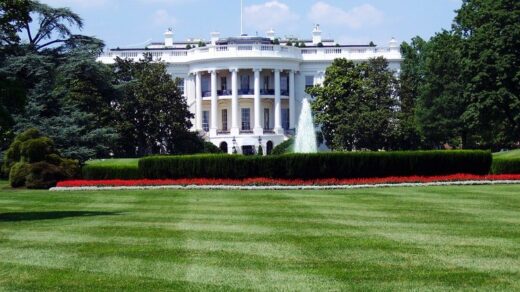These 11 major companies caved to the far right and stopped DEI programs
Author: Trudy Ring,Ryan Adamczeski
The companies turning away from DEI
Justin Sullivan/Getty Images; Tada Images/Shutterstock; vedpku/ShutterstockMeta slammed for ‘disturbing’ AI profiles, including a fake Black queer mother
Annie’s Studio / ShutterstockStudents for Fair Admissions v. HarvardWalmart rolls back DEI and reviews Pride funding. Far-right extremist says he spoke with execs to get it doneMolson Coors beer company abandons DEI after fringe online conservatives complain
Tada Images/Shutterstock
Justin Sullivan/Getty Images
Mahmoud Suhail/Getty Images
vedpku/Shutterstock
SOPA Images/Getty Images
Ken Wolter/Shutterstock
Best Auto Photo via Shutterstock
Toyota Motor Corp. announced in early October that it was refocusing its DEI programs and ceasing sponsorship of LGBTQ+ events. In a letter to Toyota’s 50,000 U.S. employees and 1,500 dealers, company leaders cited a “highly politicized discussion” about DEI and said the automaker would “narrow our community activities to align with STEM education and workforce readiness,” as first reported by the Bloomberg news service. They also said Toyota would no longer participate in the HRC Corporate Equality Index.
The announcement came a week after Starbuck initiated a social media campaign against Toyota’s sponsorship of LGBTQ+ events. Corporate officials said LGBTQ+ employee groups were responsible for these activities, not the company itself. But nevertheless Toyota has ended these relationships. An spokesperson told Bloomberg that Starbuck’s campaign prompted some questions from employees, dealers, and customers, but said that did not figure significantly in Toyota’s decision.
“Short-sighted decisions to abandon DEI initiatives will have a lasting, negative impact on business success in a future where more people than ever are identifying as LGBTQ+,” Eric Bloem, a vice president at HRC, told Bloomberg in response to Starbuck’s campaign.
Then on October 7, HRC President Kelley Robinson posted an online essay clapping back at the suggestion that DEI and LGBTQ+ inclusion are political in nature. “There is nothing political about supporting LGBTQ+ people and our families in the workplace — it’s just good business,” she wrote.
“Workers need to know that no matter who is in the statehouse or in the White House, they can trust that their employer won’t discriminate against them in their health insurance benefits or employee handbook. They need to know that they can be protected against harassment whether they’re on the factory floor or at HQ. With more polarization than ever, it’s critical for LGBTQ+ employees, customers and our allies to know that a company has inclusive policies and practices. And the CEI delivers that clarity – with 93% of LGBTQ+ Americans looking to the CEI as a measure of support for the community.
“The facts are clear. Diversity, equity, and inclusion are not just moral imperatives; they are essential for business success in the 21st century. The LGBTQ+ community represents $1.4 trillion in buying power. Thirty percent of Gen Z–the future workforce–identifies as LGBTQ+. Eighty percent of LGBTQ+ consumers would boycott companies that roll back inclusion initiatives. A third of LGBTQ+ employees say their productivity would suffer in a less inclusive environment, and 20% would consider quitting. These aren’t just statistics; they represent real people, real livelihoods, and real business impacts.”
Original Article on The Advocate
Author: Trudy Ring,Ryan Adamczeski





